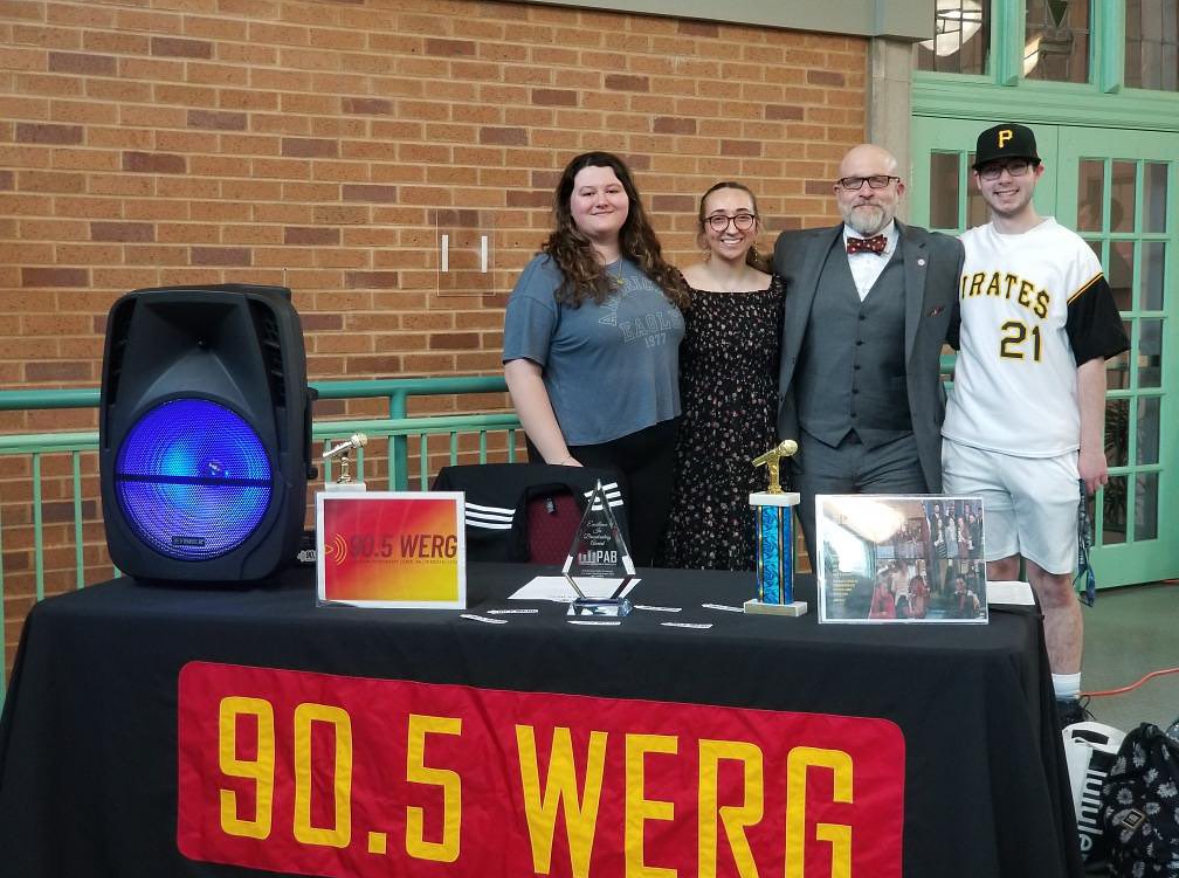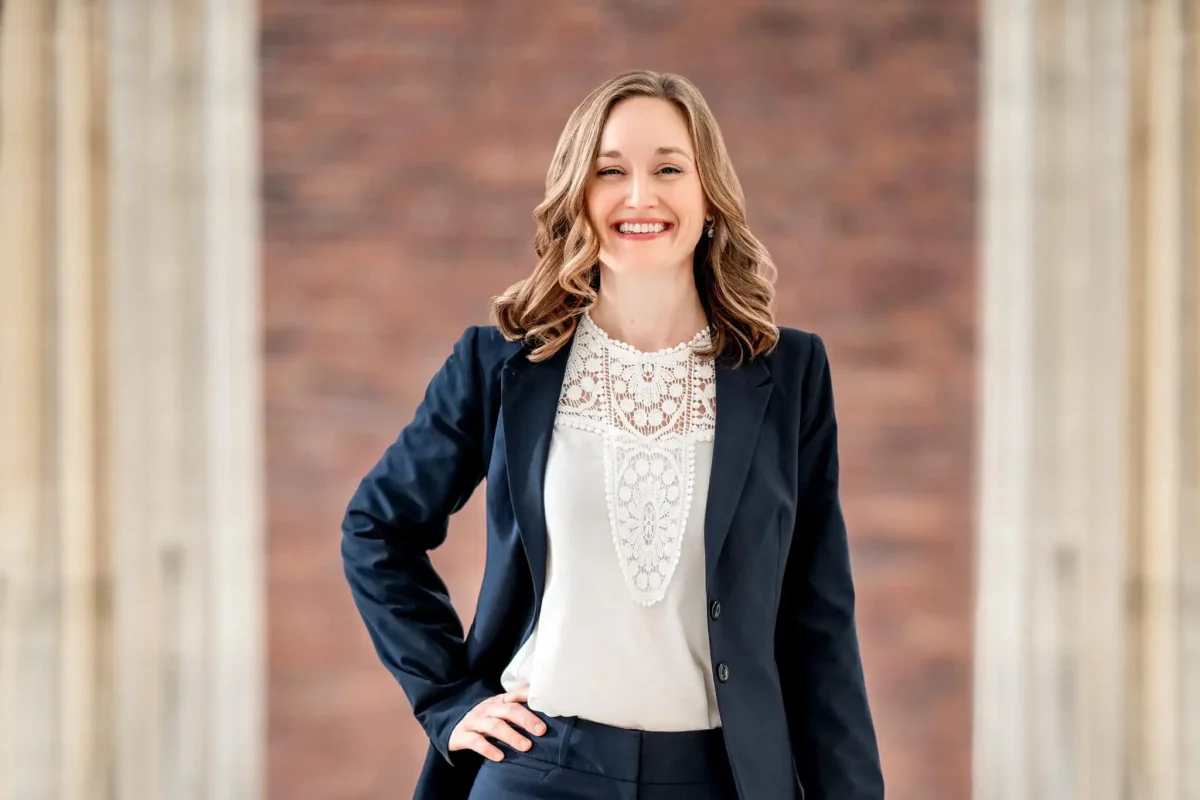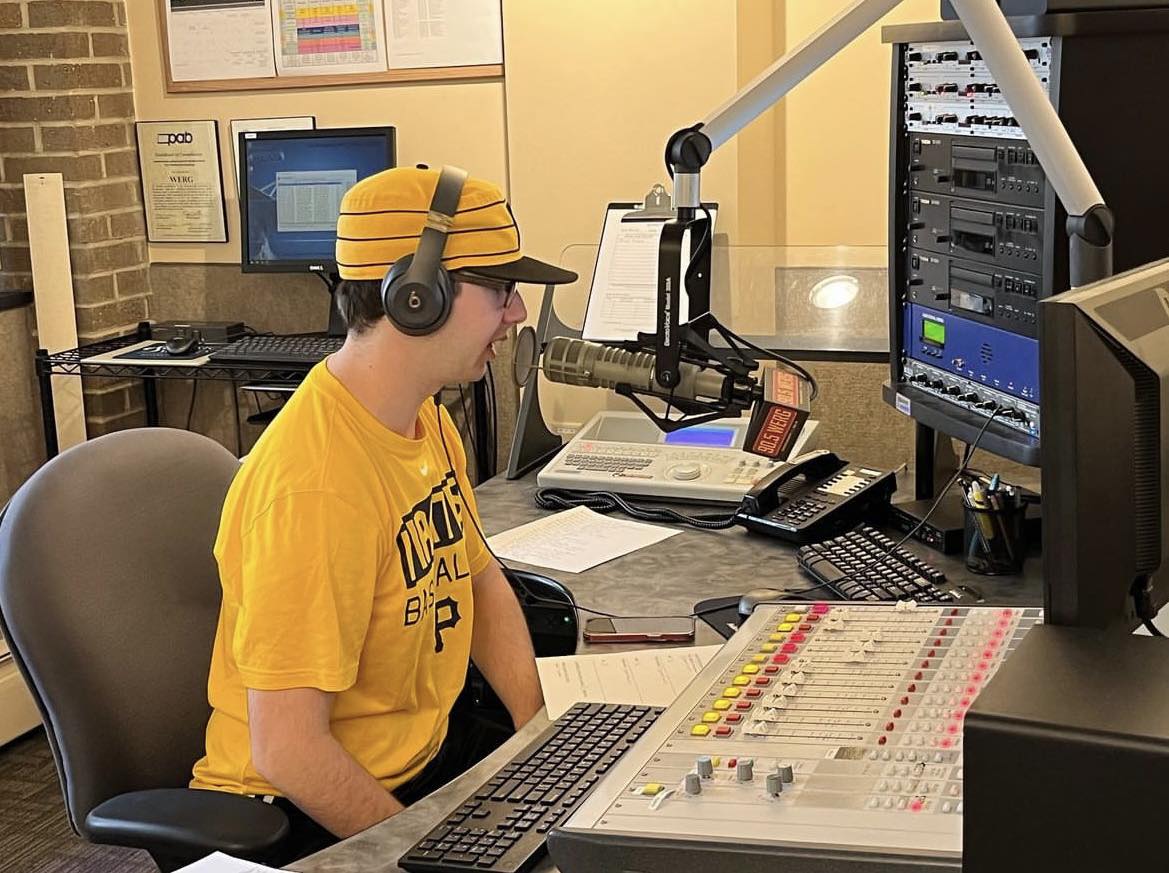Meet Bob Vollentine: a hardworking and determined sophomore criminal justice major at Gannon University.
Like many other college students, Vollentine is involved in different campus activities, including the Vets Club and programs for commuter students. During his free time, he likes to play online games, like “World of Warcraft,” and enjoys sports such as football, wrestling and track. After graduation, he hopes to work as a juvenile probation officer.
Unlike many other college students, Vollentine will graduate at age 42 as a veteran of the U.S. Armed Forces and father of two teenagers.
“I never saw myself as a college student, but job opportunities just aren’t available unless you have that piece of paper,” Vollentine said.
Vollentine is one of many nontraditional students at colleges and universities throughout the world who choose to pursue their education as adults. Prior to enrolling at Gannon in the spring of 2013, Vollentine served in the U.S. Army for 13 years. He said that his military background inspired him to return to school and pursue a job in law enforcement.
“I’m not going to lie, I was pretty nervous starting college,” Vollentine said. “I’ve been deployed to Iraq and sent a lot of places while I was in the army, but I was more nervous coming back to school.”
While Vollentine’s background and interest in criminal justice inspired him to return to school, other adults choose to enroll for a number of reasons.
Lauren Theisen, assistant director of the Center for Adult Learning at Gannon University, said that typically adult students enroll at the university to pursue jobs that have a very high placement rate in the area, such as jobs in the health care field, since many adults are already well-established and do not want to relocate. Other common majors for adult students include business, criminal justice, legal studies, psychology and social work.
Theisen has also worked with a number of individuals who already have a degree and are now taking courses as either a prerequisite to a graduate program or to continue the education they already have.
Many adult students, like Vollentine and sport and exercise science major Cain Sonney, formerly served in the military and are now pursuing a college degree. Sonney enrolled at Gannon when he was 27 years old to work toward getting a job in physical therapy. Sonney said that he has had a lot of support from both traditional and nontraditional students and is on track to graduate.
Like Sonney, most adult students at Gannon are in their 20s and 30s, although a wide range of age groups constitutes the adult community. For admissions purposes, the university defines an adult student as anyone who is 21 or older and has not attended any other college.
Every year, Gannon sees anywhere from 60 to 100 new adult students on campus. According to Institutional Research, 9 percent of undergraduate students during the 2013-2014 academic school year were ages 25 and older.
The application process for adult students is similar to the process for traditional students. Adult students are required to fill out an application and submit an official high school or GED transcript, as well as official transcripts from all colleges attended. An entrance exam is required for any student who does not have more than 30 college credits or an ACT or SAT score. While a personal statement is not required, it is often encouraged, especially if the individual has been out of school for a significant amount of time.
The criteria for adult student admittance are very similar to that of traditional students. Each academic program at Gannon has a list of set requirements and each application is reviewed to see if the student has met those requirements.
Theisen said that a lot of times, acceptance is very easy to determine. However, for most of the programs that are offered at Gannon, other factors can help determine acceptance and files are reviewed case by case.
While some adult students may have been out of school for some time and might not have the exact GPA Gannon is looking for, they might have work or military experience that can contribute to their success in the classroom.
“The bottom line is when we review applications, we have to ask ourselves if we feel the applicants are going to be successful in the program they are applied for based on the information that has been provided to us,” Theisen said.
Adult students at Gannon are eligible for the same support services as traditional students, such as the Student Success Center, which Theisen calls an “invaluable resource for students.”
Gannon also has an adult commuter lounge on the third floor of the A.J. Palumbo Academic Center where adult students can go in between classes to connect with other nontraditional students and take advantage of the different commodities the lounge offers, such as a refrigerator, coffee, couches, a computer and a microwave.
The adult lounge is associated with the Returning to Education Adult Program, or REAP, which is a support group at Gannon for adult students who attend classes either full or part time. The group offers a variety of programs throughout the academic year providing students with helpful information about campus resources.
The program, which has been around for over 40 years, began at the all-women’s Villa Maria College before the school merged with Gannon in 1989. What initially started as a program for adult mothers who were attending college to better themselves has turned into a support group for many adult and nontraditional Gannon students.
“It’s a great program,” Theisen said. “The students who spend time there meet other adult students and end up having a great support network of friends.”
Heidi Brieger Noyes, the director of Commuter Life, works closely with different nontraditional students, such as parents and veterans. Additionally, she oversees both the traditional and adult commuter lounges and helps plan different activities for the adult students.
Both Theisen and Noyes hold an orientation at the start of the fall and spring semesters for all nontraditional students to help them get acclimated and feel prepared for their new classes.
These programs help adult students feel more at ease about starting class, since many of them face a number of challenges going to school that traditional students might not, such as creating a schedule that works well with their family and job obligations. Additionally, all have had a break in their education, so re-entering the academic world can be challenging.
For Vollentine, this was his first time ever attending college and he hadn’t been in class since he graduated from Corry High School in 1993.
“College is a lot different from high school,” Vollentine said. “I literally had to Google what the professor meant by ‘works cited’ and ‘MLA.’ I had no idea what that stuff meant.”
Vollentine said he also had difficulty adjusting back to attendance policies.
“I’m 40 years old,” Vollentine said. “I struggle to give professors a reason why I’m not in class.”
Charles Visnosky, an adult freshman criminal justice major at Gannon, said it was a little challenging adjusting to college life after being out of school for so long. After initially enrolling in the medical technology program before switching to criminal justice, he realized that science wasn’t quite as he remembered it to be in high school.
“I suck at science and I learned that the hard way,” Visnosky said. “All of these kids in my class are like ‘I took AP chemistry in high school’ and I’m just thinking to myself, Does watching ‘Breaking Bad’ count?’”
Despite these challenges, adult students take their education very seriously and strive to give it their all, especially since many of them are paying for their education themselves.
“Seeing their excitement when they ace a test or get an A on a paper is awesome,” Noyes said. “It’s the same thing watching them receive their diploma.”
However, other outside responsibilities can often interfere with their achievement and impede success.
Understanding the latest computer technology can often be a barrier for adult students. Additionally, Noyes said that many do not have Internet access at home, which makes it difficult to complete online projects and check grades and assignments using Gannon’s online course management system, ANGEL.
In addition to these challenges, many adult students do not feel accepted by the traditional students given the age gap.
“All adult students have great life experience that they bring to the classroom,” Noyes said. “However, they often feel this is not appreciated by traditional students and feel alienated at times.”
Nathan Venesky, a 24-year-old post-secondary education history major at Gannon, said he feels that a lot of the traditional students have a sense of entitlement and can be disrespectful. After serving in the Marines — where respect isn’t an option — Venesky said it’s frustrating that a lot of the younger students don’t seem to have a lot of respect for one another and their professors and older peers.
Sonney, on the other hand, said he has had a good experience with his younger classmates and that he has more friends who are traditional students than nontraditional.
“At first it was intimidating being in class with everyone younger than me, but now I don’t even notice,” Sonney said. “I’ve been in a lot of study groups with traditional students and have even hung out with some of them outside class.”
Kyle Martin, a junior advertising major at Gannon, said that he has learned a lot from the adult students in his class.
“Last year in my management class there were a bunch of people from Erie Insurance who knew a lot about their marketing department,” Martin said. “They had really valuable input about the real world.”
Theisen agrees that the nontraditional students have a lot to share in the classroom with their professors and younger peers.
“I love meeting the adult students through the admissions process because they come from such a wide range of backgrounds and have so much to contribute to the Gannon community because of their life experiences,” Theisen said. “They really help bring diversity to the Gannon campus.”
KAYLA MOORE







